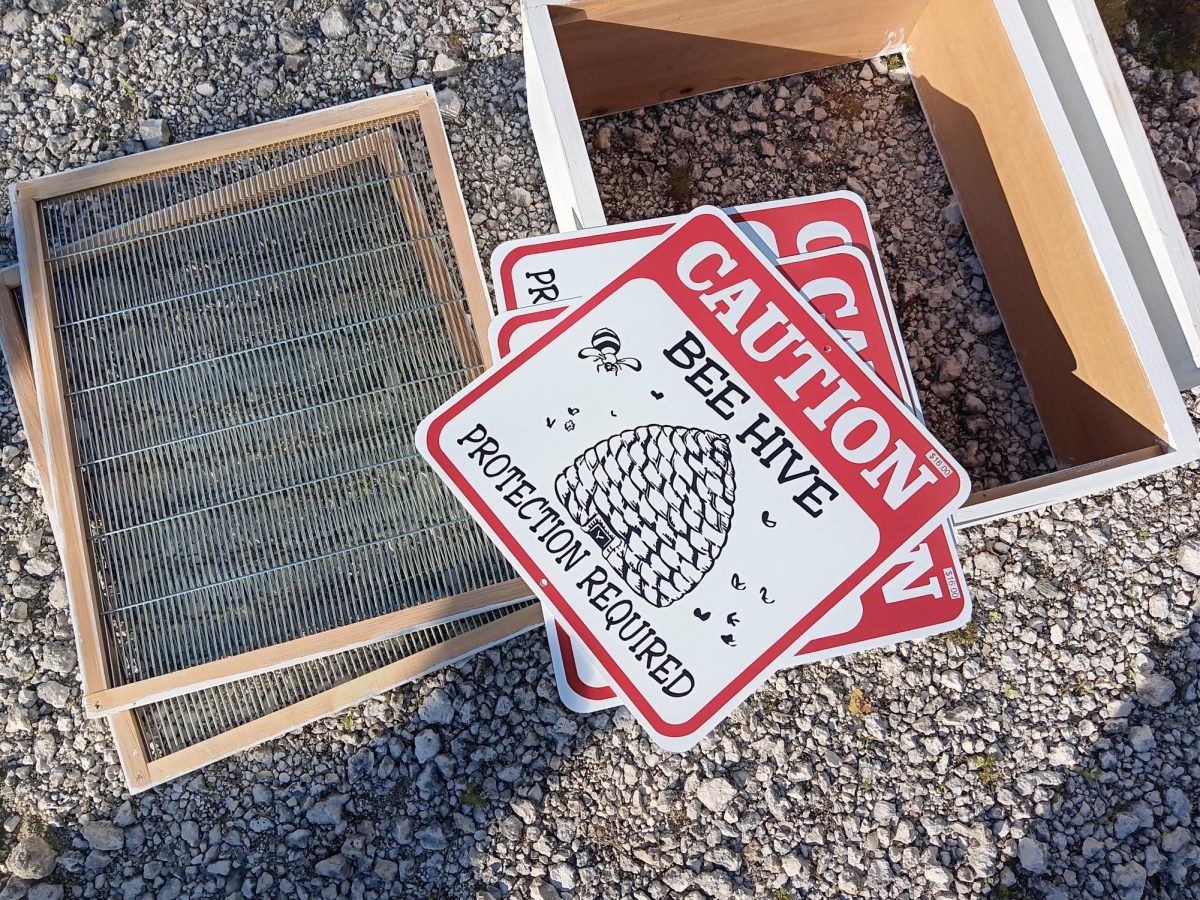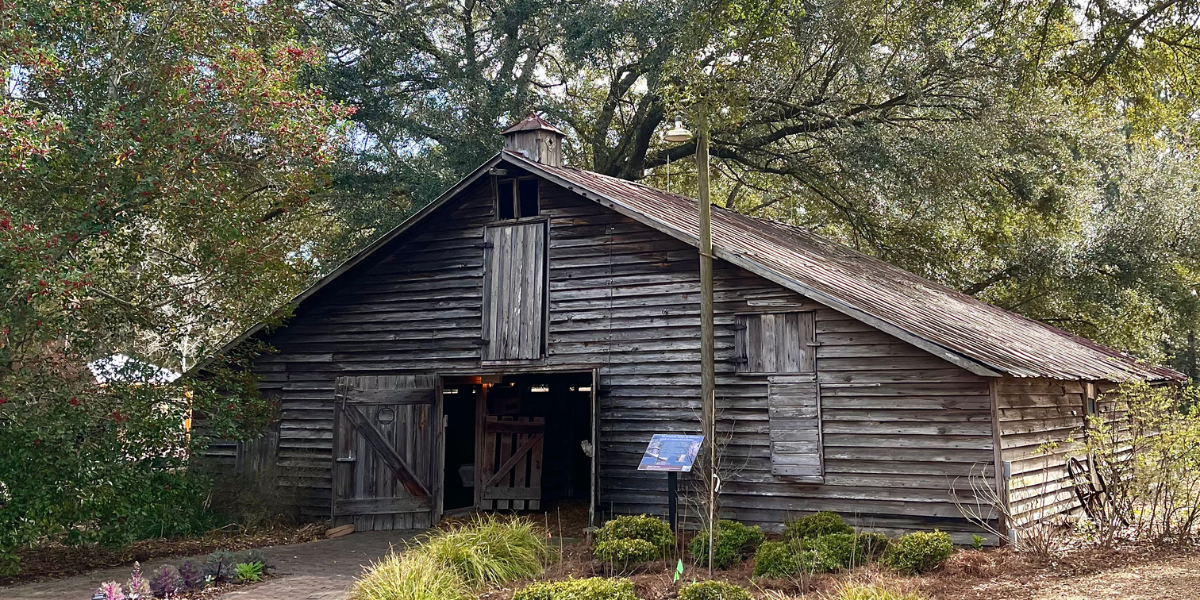Expect fresh, organic honey from The Sustainable Aquaponics Research Center (SARC) following the recent installation of two beehives on the Armstrong campus.
With only minimal stings and fourteen attendees, the Educational Beehive Installation, hosted by SARC Director Bridgette Brinton and led by certified beekeepers Sybil Kirkland and Sarah Beth Waller, was a success. During this event, attendees constructed two beehives, put up warning signs, installed bee packages and received education in beekeeping.
Beehive kits, including the brood box, honey stoppers, frames and queen extruders, have been in the SARC shed for over five years. Thanks to Waller, who acquired two bee packages, a queen bee, and frames filled with workers and male bees for the project, SARC was able to install the hives.
Right now, the current goals of the beehives are to let them develop and become self-sustainable, and to check on them once a week. During those check-ins, students can come to help and observe the bees.
Now that they are installed, students are encouraged to follow the various warning signs placed around the premises and not get close to them.
The First Check-in
On February 23rd, I had an opportunity to join Waller, along with Biology student Austin Ponder, at the first check-in.
I donned the protective beekeeper’s jacket and veil; however, Waller was comfortable interacting with the bees without any added gear.
We pulled out frames, checked on the queens and investigated for eggs. It was discovered that the first queen did not lay any eggs yet, but the worker bees lived up to their names because nectar pools were forming in the honeycombs.
One of the tactics Waller used was applying smoke. There is criticism that smoking causes the bees to lose consciousness, but Waller explained its actual function: the smoke masks our smell and the bees’ pheromones.
When we moved on to the second hive after the first became agitated, we found eggs laid by that hive’s queen.
“We could peek over the side and see the tiny grain-of-rice-looking eggs,” Waller said. “In the summer, she can lay hundreds to thousands of eggs in a day.”
Ponder was excited about their involvement with the hive.
“I’m a biology major,” said Ponder, “And this is the right step to get me into more specifics—pollinators, specifically honey bees… This is a good learning experience, more hands-on than in the classroom looking at power points.”
Students who want to get involved should contact the Eco Advocates.








